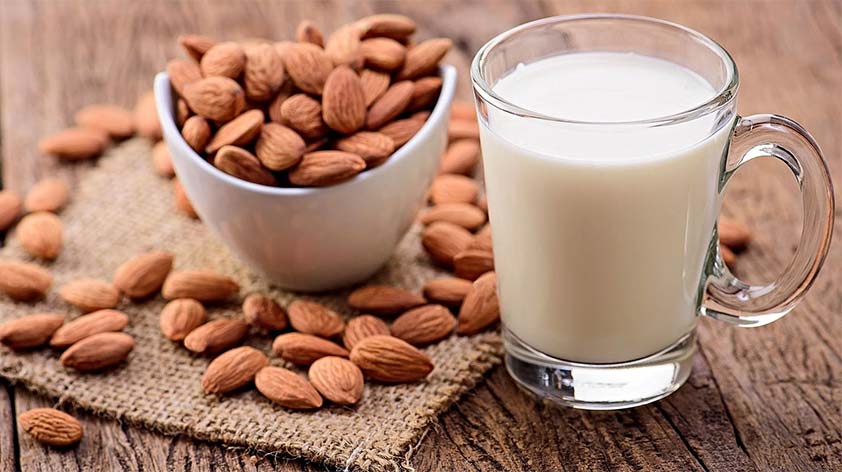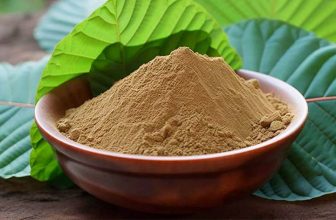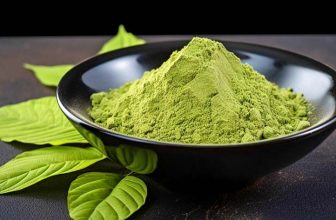
With the rise of plant-based diets and increased awareness of lactose intolerance, almond milk has become one of the most popular plant-based alternatives on the market. It possesses a distinct, nutty flavour and creamy texture. The general production method consists of soaking the nuts in water and then grinding them with lots of water. The final product is achieved through the straining of the mixture to remove the solids, thus leaving behind the milky-white liquid that we know as almond milk.
In commercial production, extra processing (high pressure or thermal), thickeners, preservative, flavourings, and fortification with nutrients may be included to improve shelf life, flavour, and texture. If you want to ensure you’re getting pure, unadulterated, natural almond milk, it’s also super simple to make your own at home, so follow on for Almond Milk: 3 Pros & Cons You Should Know About!
Pros
1. Almond Milk is Dairy free
Almond milk does not contain cow’s milk or any form of animal/dairy produce thus it is a good alternative for those that are lactose intolerant (i.e., cannot digest lactose, milk sugar), have a milk allergy or are following a vegan diet.
2. Nutritious
Almond itself is naturally rich in several vitamins and minerals, especially vitamin E which is a fat-soluble antioxidant that can protect cells from free radical damage. Although almond milk is not as nutritious as cow’s milk overall, if fortified with nutrients, it can have a similar nutritional content. For example, commercial almond milk may have a higher amount of calcium than cow’s milk.
3. Low-Calorie
Although almonds are high in fat, almond milk is low in calories. This means weight gain won’t be a concern when consuming it. However, be aware of some products that actually may contain added sugar which should be avoided to reduce the risk of a spike in your blood-sugar levels.
There are several benefits to consuming almond milk. However, all these may vary between different brands as their recipes and production methods are different. So, be sure to check the nutritional content and ingredient lists before making your purchase.
Cons
1. Could Prevent Iron Absorption
Almonds contain phytic acid, which is an anti-nutrient that interferes with the absorption of iron, zinc and magnesium.
2. Watered Down
Due to the processing methods, there is significantly less protein and fibre than in its original form (almond seed).
3. Environmental impact
Even though it has the lowest greenhouse gas emissions and requires the least land space to grow, it requires the most water amongst other plant milks.
Over 80% of the world’s almonds are grown in California, which has been stricken with drought for the past decade. Hence, diversion of water and the need for an irrigation system has taken its toll on the environment.
The production of almond milk requires more water than soy or oat milk. To obtain a glass of it requires 74 litres of water, which is more than a typical shower. However, when compared to cow’s milk, it requires significantly less water.
Generally, this drink is nutritionally better than other plant alternatives as it is a good source of vitamin E and contains more monounsaturated (“good”) fats than cow’s milk. However, as there is an attached, negative environmental impact with this product, it’s under question whether the nutritional benefits of almond milk justify its environmental footprint. Also, do note that almond milk is not a suitable substitute for cow’s milk for kids and doesn’t address the nutritional requirements of infants and children. If in any doubt, please seek the guidance of a dietitian.









